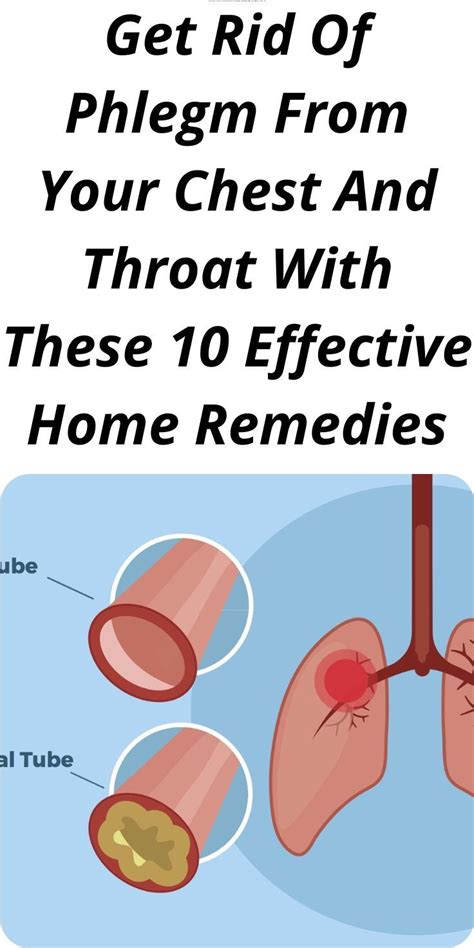How to Get Phlegm Out of Your Chest: Effective Home Remedies and When to See a Doctor
Dealing with phlegm in your chest can be incredibly uncomfortable, making it hard to breathe and sleep. This sticky mucus buildup is often a symptom of a respiratory infection like a cold or the flu, but it can also be caused by allergies, post-nasal drip, or even environmental irritants. Fortunately, there are several effective ways to loosen and remove that bothersome phlegm. This guide will explore home remedies and when you should seek professional medical advice.
Understanding Phlegm and its Causes
Before diving into solutions, it's helpful to understand what phlegm is and what might be causing it. Phlegm is a thick mucus produced by your body's respiratory system to trap irritants like dust, pollen, and bacteria. When you're sick, your body produces more phlegm to combat infection. However, excessive phlegm can lead to discomfort and difficulty breathing.
Common causes include:
- Respiratory Infections: Colds, the flu, bronchitis, and pneumonia.
- Allergies: Exposure to allergens like pollen, dust mites, and pet dander.
- Post-Nasal Drip: Mucus dripping down the back of your throat from your sinuses.
- Environmental Irritants: Smoke, dust, and air pollution.
- Gastroesophageal Reflux Disease (GERD): Stomach acid refluxing into the esophagus can trigger mucus production.
Effective Home Remedies to Clear Chest Phlegm
Several home remedies can help thin and remove phlegm from your chest. Remember, these are supportive measures and not a replacement for medical attention if your symptoms are severe or persistent.
1. Hydration is Key:
Drink plenty of fluids. Water, herbal tea (especially with honey and lemon), and clear broths help thin the mucus, making it easier to cough up. Aim for at least 8 glasses of water per day.
2. Humidify the Air:
Use a humidifier or take a hot shower. The moist air helps loosen the phlegm and makes it easier to cough up. Consider adding essential oils like eucalyptus or peppermint to your humidifier for added relief. (Always follow manufacturer's instructions for essential oil use.)
3. Saline Nasal Rinse:
A saline nasal rinse can help clear nasal passages, reducing post-nasal drip which contributes to chest congestion. You can purchase pre-made saline solutions or make your own with salt and water.
4. Elevate Your Head:
Sleeping with your head elevated on an extra pillow can help drain mucus from your lungs.
5. Over-the-Counter Medications:
Expectorants: These medications help thin the mucus and make it easier to cough up. Follow the instructions on the label carefully. Decongestants: These can help relieve nasal congestion that may be contributing to post-nasal drip. Again, follow label instructions carefully. Cough suppressants: Use cautiously as suppressing a cough can sometimes trap phlegm in your lungs. Consult your doctor or pharmacist before combining any over-the-counter medications.
When to See a Doctor
While home remedies can be effective for mild cases of phlegm, it's crucial to seek medical attention if:
- You have a high fever (over 101°F or 38.3°C).
- You experience shortness of breath or difficulty breathing.
- Your phlegm is green, yellow, or bloody.
- You cough up excessive amounts of phlegm.
- Your symptoms persist for more than a week or worsen.
- You have a weakened immune system.
Ignoring persistent or severe symptoms can lead to complications. Early diagnosis and treatment are essential for optimal recovery. Your doctor can determine the underlying cause of your phlegm and recommend the appropriate treatment plan.
Disclaimer: This information is for general knowledge and does not constitute medical advice. Always consult a healthcare professional for any health concerns or before starting any new treatment.
